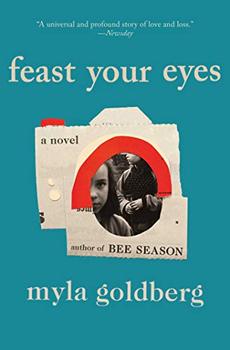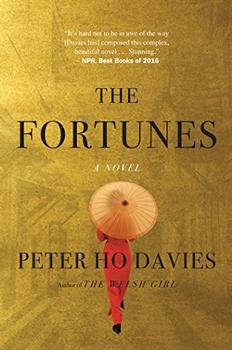Summary | Excerpt | Reading Guide | Reviews | Beyond the book | Read-Alikes | Genres & Themes | Author Bio

Stephanie Bishop's debut novel, The Singing, landed her a place on the Sydney Morning Herald's Best Young Australian Novelists list. Inspired by the true story of her grandparents' move from England to Australia (see 'Beyond the Book'), her second novel, The Other Side of the World, is a somber but compassionate account of one family's dreams and mistakes.
Henry Blackwood is an Anglo-Indian literature professor, specializing in W.B. Yeats and other Modernist poets. He and his wife Charlotte, a painter, live in Cambridge, England with their seven-month-old daughter. In October 1963, Charlotte discovers that she is pregnant again. Already overwhelmed by motherhood in their cramped cottage, she doesn't know how she'll cope with another child. Yet she feels a deep connection to the countryside around their home and has already told Henry she wants her ashes scattered here. It's an unwelcome surprise then when Henry, lured by a brochure advertising Australia, finds a job in Perth. Charlotte reluctantly agrees to go and they set sail in late 1964 with their two girls.
"Time passes differently in a new place," Charlotte finds, and after a few excruciatingly long months in Australia, she begs Henry to take them back to England. It is 105 degrees in the shade in Perth and Charlotte feels stuck in her housewife role. She takes the girls to a local playgroup and goes to a new friend's home for dinner, but without time to devote to her art she feels incomplete – "She does not feel sad so much as unearthed, unreal. Unexistent." When a male acquaintance takes an interest in Charlotte's art and offers to buy her paintings, it seems like the perfect chance to secretly amass the money to make her escape back home.
Bishop assuredly evokes Henry and Charlotte's feelings of displacement and a failure to belong. At the same time that Charlotte is trying to find a way back to herself through her art, Henry is questioning whether this position in Perth is what he hoped for. The English department keeps thwarting him in his course plans, and he starts to wonder whether it has something to do with his skin color. A trip back to Delhi to see his sick mother causes him to further question his identity: "first a British Indian, then an Englishman, now an Australian. What made him think he could reinvent himself so easily?"
As an expatriate, I could sympathize with these characters' feelings of being unsettled. A new place doesn't solve everything, the novel seems to be saying; after all, you take yourself and your relationship issues with you wherever you go. I found it particularly effective the way that Bishop compares unrealistic visions of different countries with the situation experienced on the ground. For instance, to Henry "England has always been a land of fairy tales: … hedgerows and secret gardens, goblins and magical woods." Australia has its own mythical connotations for immigrants, too – it's "a land that offers a vision of the world as it was at creation, a country of new beginnings."
I expect that the style of this novel won't be for everyone. The omniscient narration includes a lot of reportage, descriptions, psychoanalyzing and rhetorical questions, which together take up some of the space that in other novels would be given over to dialogue and scenes. This means the book can at times feel a little bit dreamy and ungrounded. Ultimately I think that is Bishop's goal, though: to make readers experience the uprooted life along with her characters. I also wonder if interracial marriage was a more controversial issue in the early 1960s than it appears to be in the world of this novel.
All the same, this struck me as a powerful look at how we construct our identity along racial and national lines and how, when it comes to marriage and a career, it seems that we always want just what we cannot have at any particular moment. Everyone will be able to relate to the feeling of being at least temporarily out of place, whether they're on the other side of the world or still where they started out.
![]() This review was originally published in The BookBrowse Review in October 2016, and has been updated for the
July 2017 edition.
Click here to go to this issue.
This review was originally published in The BookBrowse Review in October 2016, and has been updated for the
July 2017 edition.
Click here to go to this issue.

If you liked The Other Side of the World, try these:

by Myla Goldberg
Published 2020
The first novel in nearly a decade from Myla Goldberg, the award-winning, New York Times bestselling author of Bee Season - a compelling and wholly original story about a female photographer grappling with ambition and motherhood, a balancing act familiar to women of every generation.

by Peter Ho Davies
Published 2017
From the author of The Welsh Girl comes a groundbreaking, provocative new novel.
Your guide toexceptional books
BookBrowse seeks out and recommends the best in contemporary fiction and nonfiction—books that not only engage and entertain but also deepen our understanding of ourselves and the world around us.